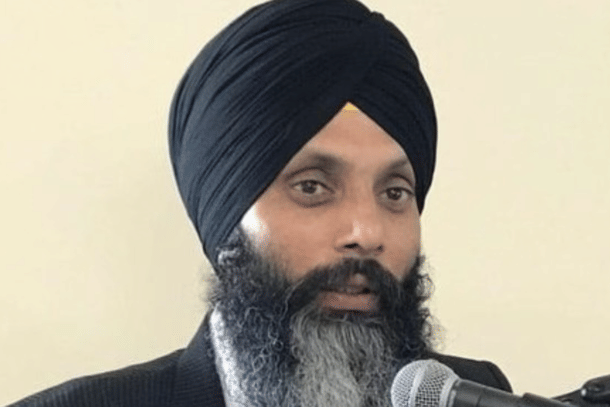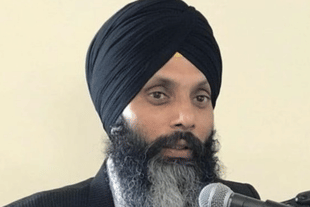World
Was Hardeep Nijjar Even A Citizen of Canada?
Swarajya Staff
Sep 19, 2023, 10:14 AM | Updated 10:14 AM IST
Save & read from anywhere!
Bookmark stories for easy access on any device or the Swarajya app.


Canadian Prime Minister Justin Trudeau on Tuesday (19 September) alleged that 'Indian government agents' may have been involved in the killing of Khalistan Tiger Force chief Hardeep Singh Nijjar in June.
Following Trudeau's claim, Canadian Foreign Minister Mélanie Joly announced the expulsion of a “top Indian diplomat” as a consequence.
In a statement in the Canadian Parliament, Trudeau said, "Over the past number of weeks Canadian security agencies have been actively pursuing credible allegations of a potential link between agents of the government of India and the killing of a Canadian citizen, Hardeep Singh Nijjar".
It should be noted that Trudeau referred to Nijjar as "Canadian Citizen" in his statement in the the House of Commons.
However, the citizenship status of Nijjar, who arrived in Canada in 1997, is shrouded in mystery.
Arrival In Canada With A False Identity
Upon arriving at Toronto’s Pearson airport in 1997, Nijjar used a fraudulent passport, presenting himself as “Ravi Sharma” according to his immigration records.
The Persecution Narrative
Nijjar sought asylum, articulating fears of persecution in India due to his connections with Khalistani terrorists. His affidavit painted a vivid picture of police brutality and the arrests of family members amid the Punjab unrest.
Canadian Officials Detect Inconsistencies
Nijjar's asylum narrative was met with skepticism by Canadian refugee officials.
A significant red flag was a letter purportedly from an Indian doctor treating Nijjar post-police torture.
The letter contained glaring errors, such as the misspelling of "intesticals," leading officials to suspect fabrication.
"The misspelling of a body part, together with an account that refugee officials found implausible, led them to dismiss him as unreliable and untrustworthy," Global News reported.
Pursuit of Residency Through Matrimony:
In the wake of his rejected refugee claim, Nijjar quickly married a British Columbia woman, potentially to secure residency as her spouse. This new approach was equally fraught with challenges.
On his application form, he was asked whether he was associated with a group that used or advocated “armed struggle or violence to reach political, religious or social objectives".
"No," Nijjar wrote.
To show the authenticity of the union, he submitted a wedding invitation, wedding photos, and a picture of the couple cuddling in a chair.
Marriage: Genuine or Convenient?
Canadian immigration was unconvinced about the authenticity of the marriage. They found that Nijjar's wife had previously sponsored another man's immigration to Canada just a year earlier, raising further suspicions.
Immigration officials considered it a marriage of convenience and rejected Nijjar’s application.
Legal Appeals and a Clouded Status
Nijjar appealed to the courts against the immigration officials' decision to reject his application.
After facing rejection in the courts too in 2001, Nijjar's citizenship status remained a topic of speculation, especially as he later identified himself as a Canadian citizen.
Also Read: Head Of Khalistan Tiger Force Shot Dead Within Gurdwara Premises In Canada





